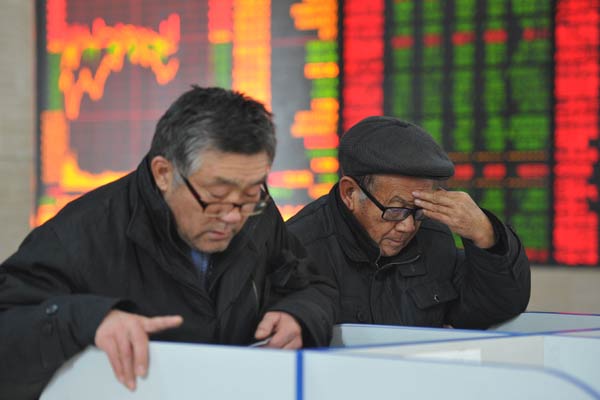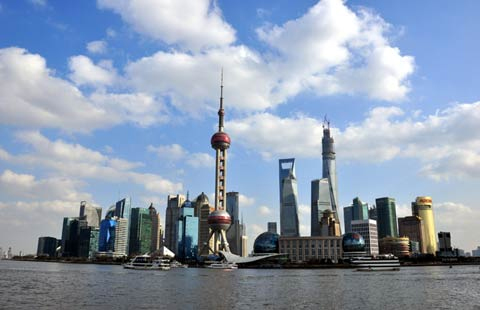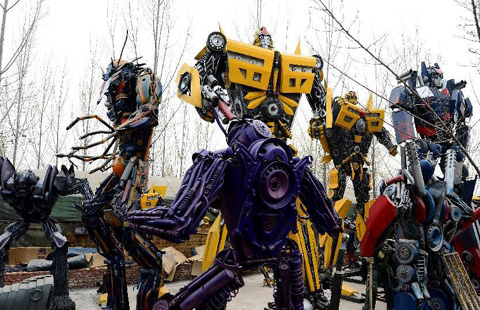Growth doubt pulls down prices
(Agencies) Updated: 2014-12-24 11:18
 |
|
Two investors examine stock prices at a brokerage firm in Fuyang, Anhui province. The Chinese mainland has seen individuals opening the most equity trading accounts since 2007 after the opening of Shanghai Hong Kong Stock Connect last month. LU QIJIAN/FOR CHINA DAILY |
Benchmark sinks to two-week low as utilities fall out of favor with many investors
Share prices fell on Tuesday, with the mainland benchmark down by the most in two weeks, amid concern recent gains were excessive and a slowing economy will curb earnings growth.
Industrial and Commercial Bank of China Ltd and PetroChina Co, the nation's biggest companies, dropped more than 4 percent. Aluminum Corp of China Ltd plunged 7.2 percent after rallying 25 percent in three days. Huaneng Power International Inc led declines for utilities, slumping 6.6 percent after valuations hit the highest levels in 19 months.
The Shanghai Composite Index fell from a four-year high, sliding 3 percent to 3,032.61 points at the close.
A 22 percent rally over the past month, fueled by policy easing speculation and leverage, has driven valuations to three-year highs as technical indicators signaled overbought conditions.
"Investors are taking profit after the surge recently," said Zhou Lin, an analyst at Huatai Securities Co. "This is why you see banks and materials such as aluminum falling now. In the long run, while there is the risk of a weak economy, we are expecting policy loosening too. I am expecting reserve-ratio requirement cuts early in January."
Hong Kong's Hang Seng China Enterprises Index retreated 0.6 percent, snapping four days of gains.
The Hang Seng China AH Premium Index fell 2.3 percent on Tuesday, the most since August 2013.
The CSI 300 Index lost 2.1 percent, paring this year's gain to 43 percent. The Hang Seng Index fell 0.3 percent.
Sub-indexes of energy, utility and industrial stocks in the CSI 300 slid more than 4 percent, the biggest declines among 10 industry groups. Utilities and industrial sub-indexes have rallied at least 28 percent over the past month, the best performers after financials.
Iron ore sank to the lowest level since 2009 as supply exceeds demand and China, the biggest user, contends with its weakest expansion in almost a quarter century.
Ore with 62 percent content delivered to Qingdao slid 1.8 percent to $67.90 a dry metric ton, data compiled by Metal Bulletin Ltd showed.
That extends this year's slump to 50 percent. Gripped by a property downturn and excess capacity, China is set to grow 7.4 percent this year, the slowest full-year expansion since 1990.
The Shanghai gauge has rallied 43 percent this year amid speculation the central bank will cut lenders' reserve-ratio requirements to support growth after lowering interest rates for the first time in two years last month.
The index trades at 11.7 times 12-month projected earnings, the highest level in three years, according to data compiled by Bloomberg.
Its 14-day relative strength index, measuring how rapidly prices have advanced or dropped during a specified time period, reached 79.6 on Monday. Readings above 70 indicate a price may be poised to fall.
China Railway Group Ltd plunged 5.1 percent in Hong Kong for the steepest loss in the H-shares gauge.
The stock was among the most overbought, according to data compiled by Bloomberg. AVIC International Holdings Ltd posted its biggest gain since September, after Hong Kong's richest man Li Ka-shing bought 450 million shares, a 9.74 percent stake in the company, according to a filing on Monday.
The ChiNext index of small-cap stocks fell 1.4 percent, extending Monday's 4.9 percent plunge, the biggest loss in a year.
Risen Energy Co slumped 10 percent. Shenzhen-listed Cloud Live Technology Group Co and Shanxi Baiyuan Trousers Chain Management, which were among 18 companies cited in a China Securities Regulatory Commission statement about market manipulation, slumped by the daily limit for a second day.
The CSRC is probing companies and individuals involved in suspected market manipulation on 18 stocks and has set up a task force, the regulator said in a Dec 19 statement on its microblog.
- Techno-culture is the way forward
- Iceland expects to attract more Chinese tourists
- China to reform pension system for govt employees
- Huawei's smartphone sales shoot up after copying Xiaomi's online strategy
- Alibaba spent $161m fighting fakes since 2013
- HK losing sheen as foreign firms shun listings
- Yunnan brews plans for expansion of coffee crop
- Corruption drive hits Chalco

















